|
|
| |
|
| |

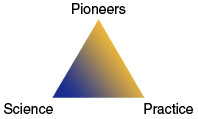
SpringerBriefs on
Pioneers in Science and Practice (PSP)
Edited by
Hans Günter Brauch,
AFES-PRESS, chairman
Free University of Berlin (Ret.)
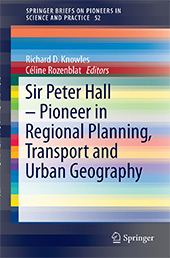
|
Richard D. Knowles, Céline Rozenblat (Eds.): Sir Peter Hall: Pioneer in Regional Planning, Transport and Urban Geography. SpringerBriefs on Pioneers in Science and Practice No. 52 (Cham – Heidelberg – New York – Dordrecht – London: Springer International Publishing, 2016).
ISBN (Print): 978-3-319-28054-7
ISBN (Online/eBook): 978-3-319-28056-1
DOI: 10.1007/978-3-319-28056-1
Order this book on the Springer Website
Order electronic version and individual chapters |
| |
|
| |
On Sir Peter Hall |
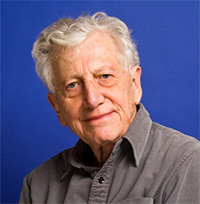 |
Professor Hall received his Master's (1957) and Ph.D. (1959) degrees in Geography from the University of Cambridge and has taught at the London School of Economics; at the University of Reading (1968 88), where he was Dean of the Faculty of Urban and Regional Studies; and at the University of California at Berkeley (1980 92), where he is Professor Emeritus of City and Regional Planning. He is author or editor of nearly 40 books on urban and regional planning and related topics, including London 2000 (1963, 1969), The World Cities (1966, 1977, 1983); Planning and Urban Growth: An Anglo American Comparison (with M. Clawson) (1973); Urban and Regional Planning (1975, 1982, 2002); Europe 2000 (ed., 1977); Great Planning Disasters (1980); Growth Centres in the European Urban System (with D. Hay) (1980); The Inner City in Context (ed., 1981); Silicon Landscapes (with A. Markusen, 1985); Can Rail save the City?(with C. Hass Klau, 1985); High Tech America (with A. Markusen and A. Glasmeier, 1986); The Carrier Wave (with P. Preston, 1988);Cities of Tomorrow (1988); London 2001 (1989); The Rise of the Gunbelt (with A. Markusen, S. Campbell and S. Deitrick, 1991);Technopoles of the World (with M. Castells, 1994); Sociable Cities (with C. Ward, 1998); Cities in Civilization (1998); Urban Future 21 (with U. Pfeiffer, 2000; Working Capital (with N. Buck et al, 2002); The Polycentric Metropolis (with K. Pain, 2006); and London Voices London Lives (2007). He has received the Founder's Medal of the Royal Geographical Society for distinction in research, and is an Honorary Member of the Royal Town Planning Institute and Honorary Fellow of the Royal Institute of British Architects. He is a Fellow of the British Academy and a member of the Academia Europea. He holds fourteen honorary doctorates from universities in the UK, Sweden and Canada. He was knighted in 1998 for services to the Town and Country Planning Association, and in 2003 was named by Her Majesty Queen Elizabeth II as a “Pioneer in the Life of the Nation” at a reception in Buckingham Palace. In 2003 he received the Gold Medal of the Royal Town Planning Institute, the first to be awarded for twenty years. In 2005 he was awarded a Lifetime Achievement Award by the Deputy Prime Minister for his contributions to urban regeneration and planning. He received the 2005 Balzan Prize for work on the Social and Cultural History of Cities since the Beginning of the 16th Century. In 2008 he received the Sir Patrick Abercrombie Prize of the International Union of Architects.
Source: Sir Peter Hall's Biography <iris.ucl.ac.uk>
|
| |
|
On the Co-editors |
Professor Richard D. Knowles (UK) BA, PhD is Emeritus Professor of Transport Geography, University of Salford. He is President and Chair of the International Geographical Union’s Commission on Transport and Geography. He was the Founding Editor of the Journal of Transport Geography (published by Elsevier) between 1993 and 2012. Professor Richard Knowles’ research and publication focus on two main themes:
- Examining effects of transport policy changes, including bus deregulation and privatization, and rail franchising
- Analysing transport and spatial development impacts of new transport infrastructure and technology at global and local levels, especially fixed links, urban rail transit and transit-oriented development in the UK and Scandinavia
He is a specialist in Transport Geography and in Scandinavian Human Geography and has published several key books and reports and numerous research journal papers and book chapters. He was also Co-Editor of Ashgate’s Transport and Mobility Book Series. Professor Knowles received the Edward Ullman Award 2004 (Association of American Geographers), and the Alan Hay Award 2010 (Royal Geographical Society), for significant contributions to Transport Geography, Among his selected publications are: Fullerton B. and Knowles R.D.(1991) Scandinavia, Paul Chapman; Hoyle B S and Knowles R D (eds.)(1992, 1998) Modern Transport Geography. Belhaven; Wiley; Knowles R.D. (2006) Transport shaping space: differential collapse in time-space. Journal of Transport Geography, 13, 407-425; Knowles R.D. (2013) Railway franchising in Great Britain and the effects of the 2008-2009 economic recession, Environment and Planning A, 45(1), 197-216; Knowles R.D., Shaw J. and Docherty I. (eds.) (2008) Transport Geographies: Mobilities, Flows and Spaces. Blackwell. |
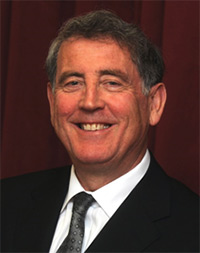 |
|
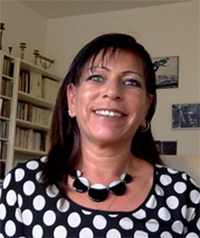
|
Professor Céline Rozenblat (France/Switzerland), PhD. Her research focuses on the effects of multi-national firms networks on cities systems’ evolution in multi-level territorial processes. She has organized workshops for high-level policy makers (French IHEDAT), and produced numerous comparative studies of cities for planning institutions such as DATAR in France or ESPON in Europe. She participates currently in the FET MULTIPLEX FP7, a project led by physicists on complex networks and she leads the FNS LOGIICS project on the integration of Chinese and Indian cities in the globalization process. Professor Rozenblat is President of the Urban Commission of the International Geographical Union (IGU) and coordinates the Territorial Intelligence Dep. Of the Utwin UNESCO Digital Campus of Complex Science. She serves on the Executive Committee of the Complex Science Society. Among her selected publications are: Rozenblat C., Melancon (eds.) (2013) Multilevel analysis and visualisation of geographical networks. Springer, Methodos Series, No. 11; Hu Y., Zhou D., Zhang R., Han Z., Rozenblat C. and Havlin S. (2013) Percolation of interdependent networks with intersimilarity. Physical Review E, 88(5), 052805; Garas A., Argylakis P., Rozenblat C., Tomassini M. and Havlin S.(2010) Worldwide spreading of economic crisis. New Journal of Physics, 12, 113043, arXiv:1008.3893v1 [physics.soc-ph].
|
| |
|
Important Links on Sir Peter Hall
|
| |
Selected Videos and Audio Recordings with Sir Peter Hall
|
| |

On the International Geographical Union
The International Geographical Union (IGU) is an international, non-governmental, professional organization devoted to the development of the discipline of Geography. The purposes of the IGU are primarily to promote Geography through initiating and coordinating geographical research and teaching in all countries of the world. Its work is conducted through the instruments of its National Committees, Commissions and Task Forces. The IGU hosts the International Geographical Congress every four years and also promotes regional conferences and other meetings that further of the objectives of the Union. The IGU also facilitates the participation of geographers in the global community of scientists through its formal affiliation as a Member Union within both the International Council for Science (ICSU) and the International Social Science Council (ISSC).
The IGU was formally established in Brussels in 1922. However, the history of international meetings of geographers is much longer. The first of a series of congresses met in 1871 in Antwerp. Since its early days the Union has consisted of three major components: a General Assembly of the delegates appointed by the member countries which meets at the time of the Congress and is the highest authority of the Union; an Executive Committee which consists of a President, eight Vice-Presidents and a Secretary-General and Treasurer; Commissions and Study Groups which continue their work between General Assembly meetings. The working languages of the Union are English and French.
Website: <http://igu-online.org/>
|
|
|
|